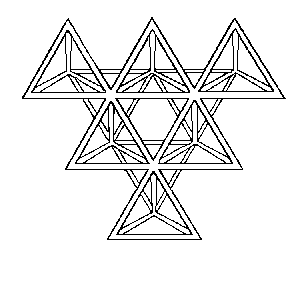
Return to Mark/Space
ISBN 0-575-05493-X (UK hbk), 0-575-06004-2 (UK pbk)
novel, science fiction, cyberpunk, nanotechnology, virtual reality, posthuman
2 November 2063, Los Angeles. Issued in the US as Terminal Café (Bantam paperback, October 1995).
"In the twenty-first century nanotechnology has revolutionized the world. Virus-sized machines that operate at molecular level have transformed every facet of life from intelligent self-shifting tecto-plastics to orbital mining.
"But the greatest revolution has been the overturning of the laws of birth, death and entropy.
"Now nanotechnology can resurrect the dead -- and by 2063 they account for almost a third of the world's population. They have their own cities, Necrovilles, within the cities of the living and have evolved a separate and alien culture.
"Los Angeles, 2 November 2063: the Day of the Dead. Five young people, in fulfilment of a pact, go down to Necroville, the City of the Dead. Each, knowing or unknowing, is searching for something. Over the course of a single night, as their paths cross and recross, they will be changed by what they find..." [jacket blurb, UK hbk, 1995]
"Conveys the strangeness of the future with a thrilling urgency. McDonald wants to get down and party in the carnival of the future." --Paul J.McAuley (in Interzone ).
"McDonald's skill at creating a richly textured and nuanced future surpasses even that of William Gibson. His narrative frame swarms with fascinating details, each following from his assumptions with extrapolative rigor and baroque elan...
"Though probably too rich and strange for the average science fiction fan, any SF EYE reader should rush out and pick it up. It may push the genre's envelope so hard it breaks, but lapses engendered by an excess of ambition are always forgivable." --Lawrence Person (in SF Eye , Issue #14, Spring 1996)
"This book tackles the truly hard questions of our time... those of identity, personal meaning, inner quests, and death. Themes which shift and mutate over existence. The very drama of life.
"Ian McDonald applies his gift of the blarney with a rapier wit and posthuman understanding. The eternal agony of the philosophers is compassionately reformed into the grey-matter entertainment of neuromancers.
"Brain cells engaged, we encounter post-existential reality. Tectors of transformation, re-animation, transubstantiation... molecular memories, mutated consciousness... sculpted virtualities... the hallucination of perception. And out of this synaptic chaos we emerge redefined, if not actually redeemed. The questions will always remain the same, only the answers continue to change." --Henry W.Targowski (in Mark/Space , 10 December 1995).
Highly recommended.

Return to Mark/Space